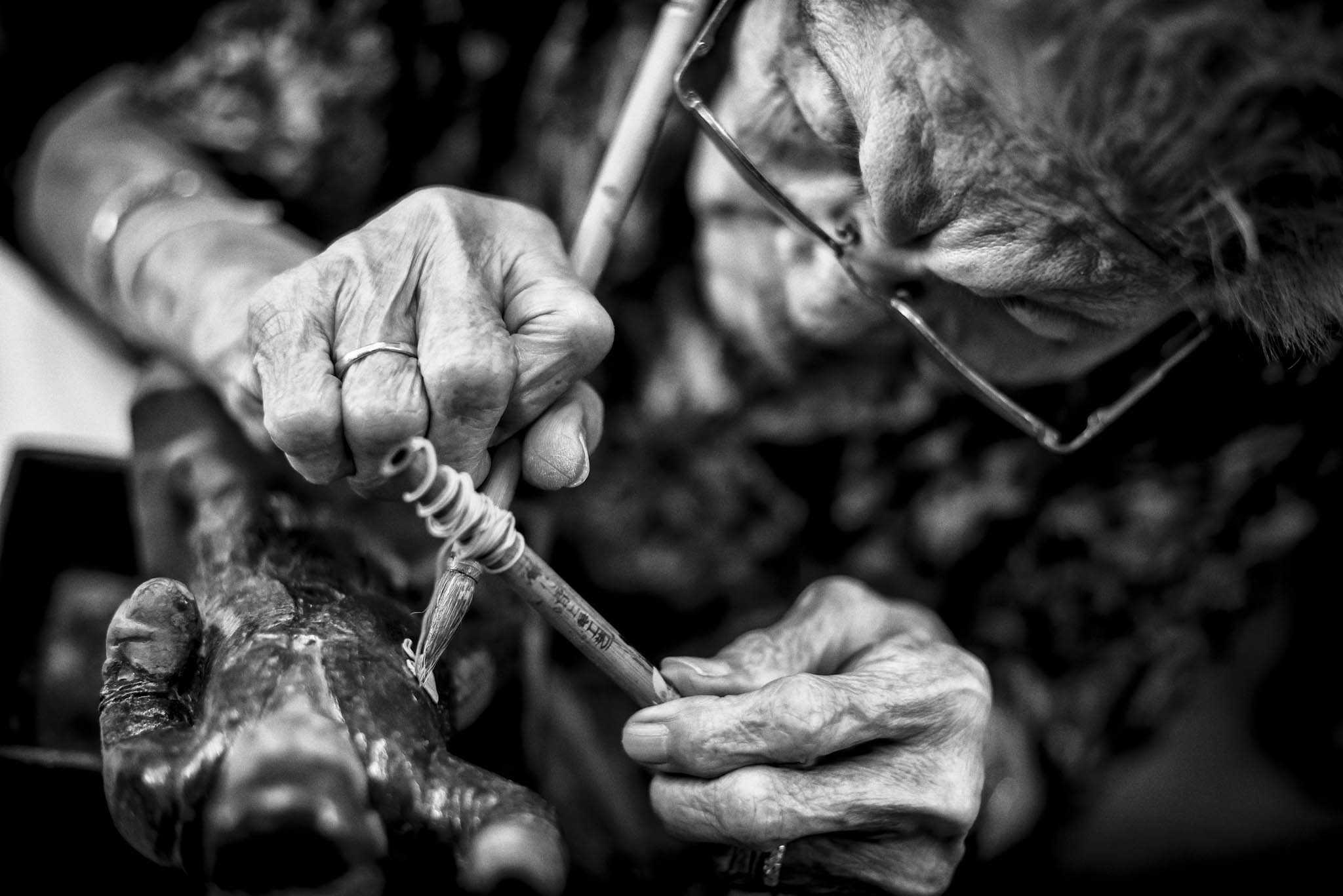Mdm Tan Chwee Lian, 89, has never given much thought to her craft: making “shen xiang” (神像) , or deity effigies.
For her, making effigies by hand has simply been work that has helped her raise her family of seven children.
The year was 1948. At 18, Mdm Tan married the young artisan Ng Tian Siang, and her life would change forever.
“Everyday, when my husband makes these effigies, I will sit beside him and watch. In this way, I will pick up bit by bit, slowly. That’s how I learnt.”
Using a battered wooden spatula, she rolls a sandalwood dough into thin her threads.
With surgical precision, she twists and nudges the soft dough threads into three-dimensional motifs featuring dragons and phoenix, flowers and auspicious elements onto the camphor wood statuettes. This is a process she calls “caat sua” (漆线), loosely translated “thread painting” from Hokkien.
“I’m so used to this old tool, been using it since 18. If I change (the tool), I probably would not know how to use it! [laughs out loud]”
When Say Tian Hng receives client commission, the artisan would consult an almanac to choose the most auspicious day to start work. From a single block of camphor wood, the rough shape is chiselled and formed, and refined over the course of time. After the carving is complete, sandalwood dough threads are added to form the intricate patterns of the deity’s garment. When the dough dries, paint is applied by hand.
“This is tough work. Very delicate. We work very long hours. But no choice, people come to us, how can we say we don’t want to do?” ”
A 30cm tall statue can take one month to complete, and sells for about $1,000.
The second generation successor of a 123-year-old trade, Mdm Tan is probably the oldest effigy artisan in Singapore.
Today, she teaches her craft at a monthly workshop listed on Airbnb Experiences at their Neil Road shophouse. Every week, she also personally coaches her two grandsons, Tze Yong and Tze Chong.
“I hope that they can continue to take this traditional craft into the future!”
Say Tian Hng Buddha Shop is located at 35 Neil Road and is open 10am-9pm daily. More information can be found on their website https://www.buddhashop.sg











